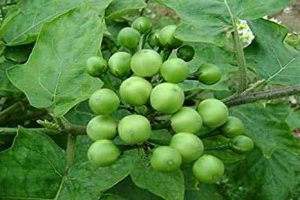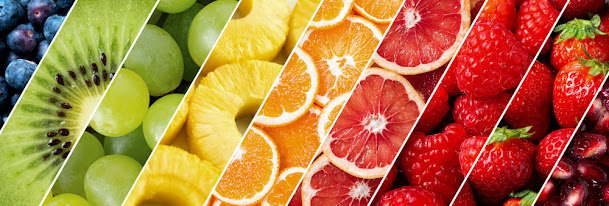15 of the Healthiest Fruits and Vegetables for Weight Loss
Thinking of switching to a diet that’s more about fruits and veggies? We think that’s an excellent idea. Research shows we need more plant-based foods in our diets, not less. And giving up other things like sugar, fat, or animal proteins doesn’t have to be part of the equation. And here’s why: Not only are fruits and veggies have fewer calories than most other foods, but they also are packed with water and fiber. These two components help you feel full faster, so you’ll likely eat less total calories throughout the day. In fact, research suggests that increasing your intake of fruits and vegetables as a stand-alone intervention can lead to meaningful weight loss over time in people who are overweight or obese.
15 of the
Healthiest Fruits and Vegetables for Weight Loss
Apples
- An apple a day may keep the doctor away, but it might also help you lose
weight. Apples are high in pectin, a Online vegetable shopping in chennai
type of soluble fiber that has been shown to help reduce hunger. In one study,
people who ate apples before meals felt fuller and ate less than those who
consumed another type of snack. And apples are also a good source of quercetin,
a natural plant compound that has been shown to reduce inflammation in the
body. Since inflammation has been linked to higher rates of obesity, a diet
rich in quercetin-rich foods like apples could be one way to fend off extra
pounds. Avocados - These creamy fruits are a great addition to your diet if
you’re trying to lose weight. Like other fruits, avocados are high in fiber and
relatively low in calories. But what really sets them apart is their high
content of monounsaturated fatty acids (MUFAs), which have been shown to have a
number of health benefits. A high-MUFAs diet has been shown to lower
cholesterol, which can help prevent heart disease, one of the biggest risk
factors for obesity. And avocados also contain plant compounds called
carotenoids, which may help protect against certain types of cancer.
Bottom line:
Eating more fruits and vegetables can help you lose weight.
What
most people don’t realize is that vegetables are often more caloric than
fruits. For example, broccoli has about 90 calories per serving, while apples
have about 45 calories per serving. So it’s important to keep an eye on serving
sizes, as well as calories per serving. A word of caution: while vegetables and
fruits are generally low-calorie and nutritious, it’s important to be careful
with the amounts. If you eat too many vegetables and fruits, you’re not only
missing out on other important nutrients, but you’re also likely to end up
gaining weight. Our advice is to eat a variety of fruits and vegetables each
day—about 2 cups of fruits and 3 cups of vegetables. You can also maximize your
weight loss potential by choosing low-glycemic fruits and vegetables. These
have been shown to have a lower impact on blood sugar and insulin release,
which may allow you to feel full longer and reduce the number of calories you
consume at your next meal.
How to
Incorporate More Fruits and Vegetables into Your Diet
Before
you start chowing down on kale and strawberries, there are a few things you
should keep in mind. First, it’s important to eat a variety of fruits and
vegetables. This will help you get all the different nutrients fruits and
veggies contain. It’s also important to eat the right amount. Even though
they’re low in calories, if you eat too many fruits and veggies, you may
actually gain weight because of their high fiber content. To achieve the right
balance, try to eat two cups of fruits and three cups of vegetables per day. And
don’t forget to include whole grains, legumes, and low-fat dairy products in
your diet as well. Together, these foods will help you get the nutrients and
calories you need to stay healthy and lose weight.
Bright leafy
greens
A
good way to get more vegetables in your diet is to start with greens like
spinach or kale. These foods are loaded with vitamins and minerals that your
body needs for good health. They’re also very low in calories and have no fat,
which makes them an excellent choice for people trying to lose weight. And what
nutrients do greens contain? For starters, they’re a good source of vitamin C,
iron, and potassium. Greens are also a good source of calcium, which is
essential for healthy bones and may help reduce the risk of osteoporosis as you
get older. What’s more, greens are a good source of plant protein, which will
keep you feeling full and prevent overeating.
Other leafy
greens
Other
good options for weight loss include Swiss chard, endive, and lettuce. Like
other greens, these vegetables are low in calories and contain vitamins,
minerals, and many other nutrients that our bodies need. And like other greens,
these vegetables are also high in fiber, which can help you feel full and
prevent overeating.
Cruciferous
vegetables
Cruciferous
vegetables such as broccoli, cauliflower, and brussels sprouts are low in
calories and high in vitamins, minerals, and fiber. These fruits and vegetables
online in Chennai vegetables
can help stabilize blood sugar, which can help you feel full longer and prevent
overeating. And if you want to add more vegetables to your diet, these are good
options because they are relatively easy to eat. As with other vegetables,
eating more cruciferous vegetables will help you get the vitamins and minerals
your body needs.
Fruit-based
veggies
Fruit-based
vegetables such as tomatoes, squashes, and peppers are high in vitamins and
minerals, but low in calories. Squash, for example, is rich in vitamin A, which
is important for eye health, and vitamin C, which helps promote healthy skin.
And tomatoes contain lycopene, a cancer-fighting compound that has been shown
to help prevent prostate and breast cancer. Fruit-based vegetables are good
sources of fiber and complex carbohydrates, which will help you feel full and
prevent overeating. And because they are high in water, they’re also low in
calories.
More info
One
way to get more buy fresh fruits online chennai in
your diet is to use a meal-replacement drink. These drinks are high in protein
and vitamins, and low in calories. They’re also an easy way to add more fruits
and vegetables to your diet without having to change your habits too much. A
word of caution, though: these drinks are meant to be used as part of a healthy
diet, not as a replacement for healthy eating. If you’re trying to lose weight,
remember that fruits and vegetables are not just healthy—they’re also low in
calories. So you can eat a lot of them and still lose weight, as long as you
don’t go overboard and eat too many calories.


Comments
Post a Comment